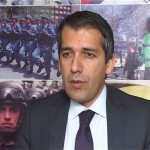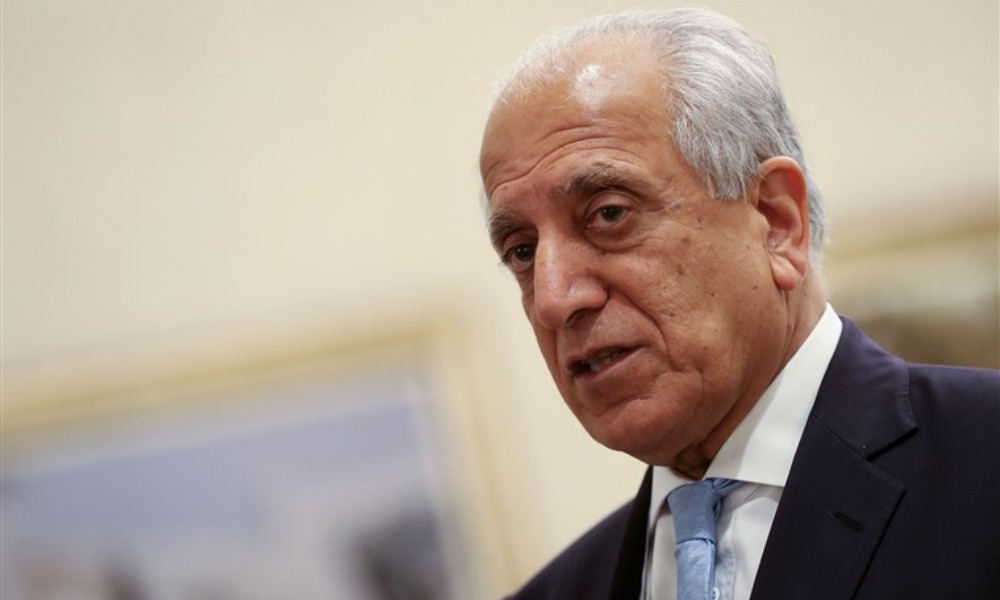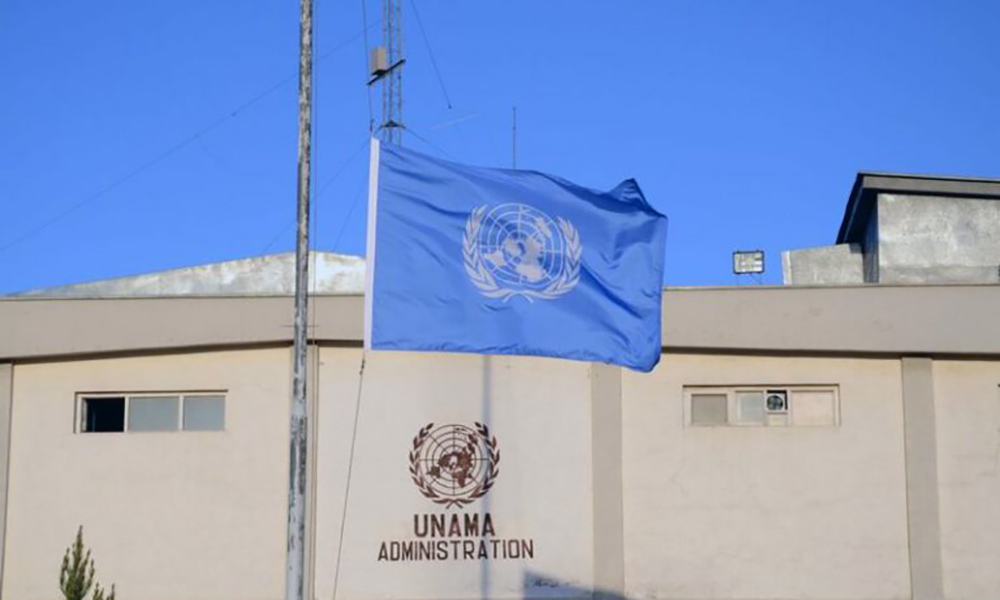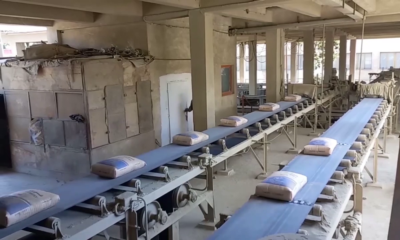Latest News
Pakistan to Ban Haqqani Network Activities Soon

 Afghans will highly appreciate the decision to be made by the Pakistani Officials on banning the Haqqani Network activities in Pakistan,their activities will be decreased within the region.
Afghans will highly appreciate the decision to be made by the Pakistani Officials on banning the Haqqani Network activities in Pakistan,their activities will be decreased within the region.
The Afghanistan officials in Interior and Defense Ministries have welcomed the Pakistan decision said,”if Pakistan honestly combat terrorism and ban Haqqani network activities as seriously it will help insecurity decreased within the region.”
One sources didn’t want to be named told to Ariana News that Pakistan has come to decide to ban Haqqani Network activities after the Afghanistan exert pressure on Pakistani Officials.
Afghanistan Foreign Ministry deputy spokesman Serajulhaq Seraj has said,” based on the Pakistani media outlets reports on stopping Haqqani activities we warmly welcome the decision made by the Islamabad officials, we also demand join combat on terrorism seriously peace and stability is badly needed in Pakistan-Afghanistan and in the region.”
Afghanistan Interior Ministry spokesman Sediq Sediqee said,” peace and stability has been the wish and hopes of Afghan Nation for the past 13 years if Pakistan this time seriously combats against terrorism both countries and the regions will enjoy peace and tranquility.”
Afghan Military expert Jawid Khohistani said,” the Pakistan decision on stopping Haqqani Network activities surely cause peace and stability in both countries,but few people will believe in Pakistan on fulfilling its commitments against Peace and there is no guarantee for it.”
This comes after that Pakistan has broken its commitments for supporting peace process in the past several years several times a question rises does Pakistan this time will do enough for securing peace and stability or it will be the same re-action only on words frames as usual?.
Report: Rafi Sediqee

Latest News
Biden ‘ignored advice’ on US troops withdrawal from Afghanistan: Khalilzad

US President Joe Biden ignored the counsel of senior US diplomats, including Secretary of State Antony Blinken, who urged him not to pull US troops out of Afghanistan without certain conditions in place, former Special Representative for Afghanistan Reconciliation Zalmay Khalilzad told the House Committee on Foreign Affairs in a transcribed interview released Wednesday.
Khalilzad — who helped negotiate the Doha agreement that led to the complete withdrawal of troops – testified that Biden could have stopped or altered the plan to remove all US forces from Afghanistan by September 2021.
“The State Department — or the secretary and myself, we wanted a conditional withdrawal approach,” he said. “But the ultimate decision was, as we all know, that it was to withdraw based on a timetable.”
Khalilzad said he recommended that the Islamic Emirate and the Afghanistan government at the time reach a separate peace agreement before US troops left the country.
“Secretary Blinken and I, I believe, did recommend that conditionality. That’s my judgment, that conditionality would be the prudent thing to do,” Kalilzad told the committee in his Nov. 8 interview. “But then the response was, ‘Can you get the other side – the Talibs (Islamic Emirate) – not to go back to fighting?”
In his testimony, Khalilzad said such an agreement could have been based on an early 2021 peace negotiation that Khalilzad said visualized a “peace government,” which would have given the Islamic Emirate an equal share of power over Kabul with the then Western-backed Afghan government.
“It was essentially kind of a power-sharing formula that our experts had put together in consultation with outside experts in which the government consists of individuals with ties to both – from the Afghan Government and the Taliban – and be led by somebody acceptable to both sides,” he told the committee.
He said that when reaching such a conditional agreement appeared unlikely, Biden instead decided to move forward with the pullout to avoid IEA attacks on US forces.
Khalilzad said the sudden lack of US support helped enable the Islamic Emirate to retake power, 15 days before the last American service member left the capital.
Khalilzad also told lawmakers that State Department officials had predicted the power-sharing initiative would not have lasted longer than three years without a continued US presence in the country.
He also said at points throughout negotiations with the Islamic Emirate, there were times he believed that the IEA “negotiated merely as a stall tactic to wait out the U.S. until its military forces withdrew to zero.”
Khalilzad believed Biden’s announcement in April 2021 to withdraw all U.S troops negatively affected the morale of the Afghan government forces. He explained that: “The U.S. withdrawal had a psychological impact and negatively affected the relative balance of power for the government. That’s obvious.”
Latest News
Five dead, 24 injured in traffic accident in Samangan

The press office of Samangan Police Command says five people died and 24 others were injured in a traffic accident in Dara-e Suf Payeen district of the province.
Samangan Police Command said the incident took place on Thursday at 1:00am when a vehicle was traveling from Balkh province towards Dara-e Suf Payeen district.
Local officials stated that most of the injured were transferred to the Dara-e Suf Payeen district hospital, but three of them, who were in a serious condition, were taken to the Balkh Regional Hospital.
The cause of the accident was reportedly due to a technical problem with the vehicle.
Latest News
UNAMA issues latest rights report, notes ongoing challenges for women, girls and media

The Special Rapporteur on the human rights situation in Afghanistan, Richard Bennett, urged the United Nations Human Rights Council to keep Afghanistan and its people at the forefront of its agenda.
“It is important to hold the Taliban (Islamic Emirate) to account for their policies and actions,” he told the UN rights body this week.
Bennett’s account coincided with the UN mission in Afghanistan’s (UNAMA) latest report on the human rights situation – covering the period from January to March 2024.
In its report, UNAMA said that while the new school year in Afghanistan commenced in April, it did so without the presence of Afghan girls in high schools.
The report also stated that an invitation to attend a ceremony in Kabul marking the commencement of the new academic year, issued to media by the Ministry of Education, specifically instructed women journalists not to attend, citing a “lack of proper place[s]” for women.
UNAMA did however point out that while they still received reports of the enforcement of the hijab instruction,such incidents significantly decreased after January 2024 with the cessation of the large-scale enforcement actions which took place between December 2023 and January 2024.
On the issue of freedom of media, UNAMA said the situation for journalists was “mixed”.
“Some journalists have reported an improvement in access to information with the appointment of spokespersons for de facto line departments at provincial level and the establishment of WhatsApp groups by some de facto entities to distribute information.”
However, journalists and media workers continue to operate in a challenging environment, with the media facing significant financial challenges, in addition to a range of restrictions imposed by the Islamic Emirate and the risk of arbitrary detentions.
Between January and March, at least four journalists were arrested, including one from Japan’s Kyodo news agency. All have since been released.
UNAMA stated however that threats to former government officials and former ANDSF members, including arbitrary arrest and detention, torture and ill-treatment and extrajudicial killings, continue to be reported to UNAMA Human Rights, despite the general amnesty announced by the Islamic Emirate.
On the death penalty and corporal punishment, UNAMA reported that the Islamic Emirate carried out three public executions of individuals sentenced to the death penalty.
“In all three instances, the de facto authorities stated that the death penalty was implemented in accordance with a sentence upheld by three de facto Courts (District, Appeal and Supreme) and approval by the Taliban leader,” the report read.
In response to the UNAMA report, Zabihullah Mujahid, spokesman of the Islamic Emirate, said that no one’s rights have been lost in Afghanistan, but Sharia rights of men and women in Afghanistan are secured and people have access to their rights more so now than before.
Mujahid called the UNAMA report baseless and said the report was not accurate.
Regarding the arrests of former government officials, Mujahid says no one has been arrested and there are no documents in this regard.
“In general, UNAMA’s reports are always full of propaganda and are meant to destroy public minds, and they do not have any documents to prove their claims,” added Mujahid.
-

 Sport2 days ago
Sport2 days agoAfghanistan announce T20 World Cup 2024 squad
-

 Sport4 days ago
Sport4 days agoKohli slams strike-rate talk and pundits ‘from the box’
-

 Latest News5 days ago
Latest News5 days agoGhori State Cement in Baghlan increases production
-

 World4 days ago
World4 days agoBlinken arrives in Saudi Arabia to discuss Israel normalization, post-war Gaza
-

 Regional4 days ago
Regional4 days agoDubai ruler approves new $35 billion airport terminal
-

 Health4 days ago
Health4 days agoNationwide polio vaccination campaign kicks off across Afghanistan
-

 Sport2 days ago
Sport2 days agoNew Zealand to go ahead with Afghanistan cricket Test
-

 Science & Technology4 days ago
Science & Technology4 days agoMercedes Benz unveils electric G-class at Beijing Auto Show















